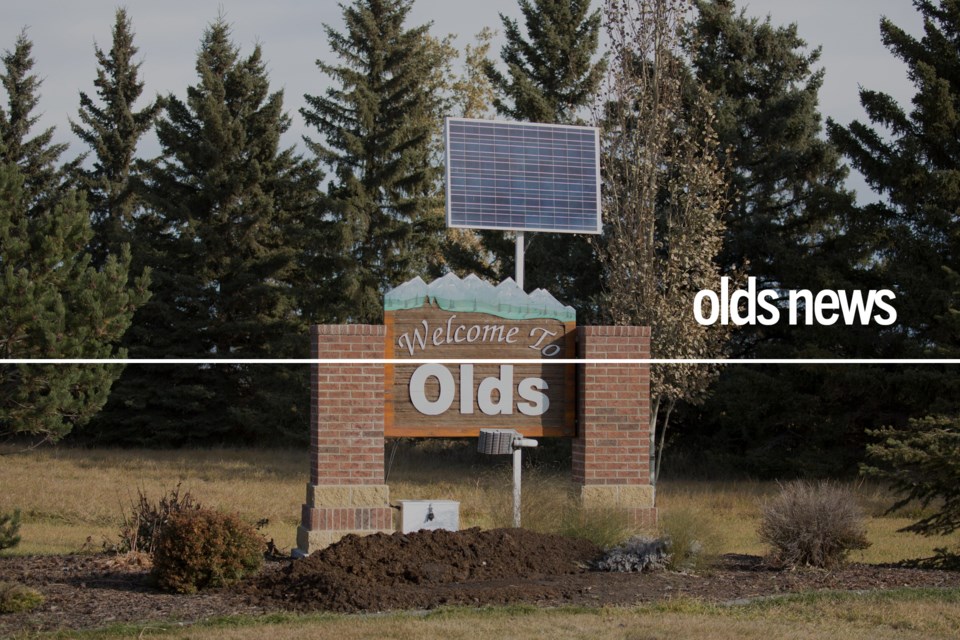OLDS — Town council has passed its traffic bylaw.
Council did so during its Jan. 22 meeting. The bylaw was first introduced on Jan. 8.
It’s the first of several bylaws coming that were carved out of the town’s massive community standards bylaw (CSB).
It’s hoped that slimmer, more specific bylaws, such as the traffic bylaw, will be easier for members of the public to deal with. They’re expected to be in the range of six pages, as opposed to dozens of pages for the CSB.
Senior community peace officer Sgt. Paul Wright introduced the bylaw noting that in essence, its purpose is to deal with offences that aren’t covered under other legislation such as the province’s Traffic Safety Act.
Town council has given first reading to a new traffic bylaw.
“We were looking to try to break these apart and make them very nimble, agile and smaller, so that citizens and officers alike can reference material quicker and in a more straightforward fashion,” protective services director Justin Andrew said as the bylaw was introduced on Jan. 8.
Council was told that several other communities are also creating smaller, more manageable bylaws.
Senior community peace officer Sgt. Paul Wright introduced the bylaw noting that in essence, its purpose is to deal with offences that aren’t covered under other legislation such as the province’s Traffic Safety Act.
Wright said the main issues peace officers deal with in Olds are jaywalking, the fine schedule for offences, 72-hour parking, as well as issues regarding RV parking and trailers.
A local fee structure can be levied for offences.
“The ultimate goal, really for us, is to get compliance for some of the offences that are going on out there,” Wright said. “Failing that, the next step up for us is we elevate those tickets and they go on to provincial legislation.”
Councillors had several criticisms of the bylaw. Those are expected to be dealt before it comes back to council in the future.
For example, Coun. James Cummings criticized a section of the bylaw that specifically outlaws riding horses in town, noting that another part of the bylaw makes reference to hooved animals in general. He questioned why the difference.
"What I’m reading here is I can ride my donkey down the road, but I can’t ride my donkey on the sidewalk, which is kind of odd,” he said.
Some councillors, including Cummings, feared that could be a problem for Olds Regional Exhibition (ORE) workers and volunteers who frequently move horses across 54th Street from one part of their property to the other.
“Are we going to have a horse crossing way to create a situation where they’re not in violation of this bylaw because they’re crossing the road,” Cummings asked.
Coun. Dan Daley noted lots of agricultural-related vehicles and equipment come into town headed for the ORE or auction mart. He wouldn’t want to see that traffic outlawed.
“There’s no intent for us to prohibit or outlaw the movement of agricultural through town. It’s obviously a big part of who we are and what we do, so we will definitely talk about how we address that to make sure that it is appropriate and reasonable,” Andrew said.
He said the same thing applies to horses.
“We’re not trying to specify only horses are no good but donkeys and camels and alpacas are OK to ride. The whole premise is just creating a basic level of understanding,” Andrew said.
Cummings said a section of the proposed traffic bylaw that allows town employees to ride off-road vehicles doesn’t define the term ‘town employees.’
He recommended changing that part to include contractors hired by the town. Otherwise he said, those contractors could be “breaking the law” if they drove off-road vehicles in town.
Cummings also questioned the bylaw’s rules on idling vehicles. He said he had done a lot of research on idling rules in bylaws across the province.
He said many such bylaws have exemptions for idling vehicles in certain cases, but there was no such exemption in the proposed Olds bylaw.
Cummings said that could create problems for situations like crews repairing lights or signs.
Coun. Heather Ryan wondered how everything from electric bikes, hoverboards, scooters and skateboards fit into the new bylaw.
And Daley wondered if the small motorized vehicles driven by people with disabilities as well as golf carts are prohibited under the bylaw.
Wright noted the province’s Traffic Safety Act has provisions regarding vehicles such as all of those.
Andrew said the plan is to provide links to other laws that cover items and definitions that aren’t in the bylaw.
The bylaw is expected to come back to council at a later date with revisions.



